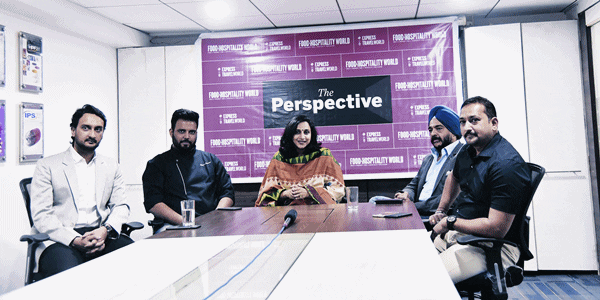
Hospitality industry hails safety as top priority
The hospitality industry has collectively opined that safety of its consumers and staff should not be compromised under any circumstance, following the recent Kamala Mills fire incident in Mumbai. In a group discussion titled ‘The Perspective’ organised by Express TravelWorld, industry stakeholders including Gurbaxish Singh Kohli, senior vice president, Hotels and Restaurants Association of India (HRAWI); Shail Barot, international business development director, Vie Hospitality; Vinayak Laud, partner, Vinayak Holidays and Chef Naved, restaurant consultant, expressed their perspectives on safety and compliance among various other associated topics.
Speaking on behalf of HRAWI, Kohli said, “We have many members and we make sure to check their credentials. We also conduct physical inspection of their restaurants and hotels to ensure complete safety compliance. This is not an industry to make quick money. Every member of HRAWI is required to renew the membership with detailed re-check. We also update our members on the latest information and industry developments.”
Adding to that, Chef Naved commented, “We have seen many young entrepreneurs coming from other industries, wanting to foray into the hospitality space, but they have little knowledge of the industry. This is one of the main challenges. In terms of norms, the UAE for instance, has evolved a lot over the years and we should learn from that. We as a community should ensure complete compliance.”
F&B has evolved as a tourism offering over the past few years, thereby placing itself on the itineraries on inbound and outbound tourists. Shedding light on the tourism aspect, Laud stated, “Many restaurant owners travel countries to learn from international restaurants, but they should go beyond the decor and take into account the safety measures too.”
Adding his view, Barot said that fire safety is most important. He said, “It all starts with the organisation. We should encourage regular fire drills, which serve a practical tool to spread awareness and be prepared. We should act on it now.”
Speaking about safety in the unorganised segment, the panel agreed that they should be made accountable too. Among other areas, the panel also highlighted the role of transparent and clear safety guidelines and co-ordinated efforts.
